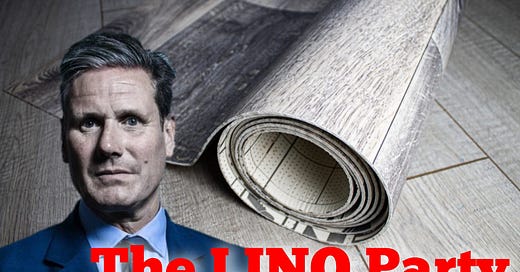English Labour's betrayal of Scotland
Andy Anderson provides a short history of the Labour Party which had its roots in Scotland. The rot at the heart of English Labour has been decades in the making. Keir Hardie wouldn’t recognise Sir Keir Starmer’s Labour party because it has turned its back on the People. It’s now fully aligned with the corrupt British establishment and is funded, like the Tories, by wealthy oligarchs. Someone commented that it’s the ‘cut and paste’ party, adopting Tory policies and slapping on a red rose, hoping people won’t notice.
Last week’s Commons vote where the two Anglo Labour MPs, Murray and Shanks, voted against their nation’s right to self-determination, should convince all Scots of the futility of supporting English Labour.
The Labour Party owes its early beginnings to Scots like Keir Hardie and Robert Cunningham Graham. It got its first Scottish support base from the Red Clydesiders in 1922, and its great Scottish reputation from the work of the Attlee Government (1945-51).
When I was a boy in Glasgow and in Fife, Labour was the party that 85% of working people supported, because they saw Labour in Scotland as very supportive of their communities, of their trade-unions, and of high public service standards.
It was this background which gave the Labour party such a powerful electoral base in Scotland as it did in some working class areas of England. Unfortunately, the English Labour leadership lost its way in the mid 1970’s and in 1979 they lost the UK election to Margaret Thatcher.
Just before that election the Labour Government was engaged in a bitter struggle with low paid public sector workers and was attempting to further decrease their earnings, and Thatcher’s adverts were able to show long lines of workers under the caption “Britain is‘n’t working.”
So the Labour leadership had trashed their own party’s good reputation in Scotland, and elsewhere, by abandoning the policies which had made them so appealing to voters. Why did the leadership do this?
The voters in Scotland, and in some parts of England continued to support Labour even though the Labour leadership moved further and further towards the Tory position, so why was that? Clearly it was not down to particular individual leaders, because it continued under different leaders. The only conclusion that makes sense is that powerful vested interests got a hold of the Party leadership and influenced policy.
That was the case, and remains the case with the Labour Party. So the people who present themselves to us as “Labour” today have nothing in common with the old Labour Party. They are merely using the Labour name to disguise a different type of Tory, just like the other Tories but less honest about their objectives. Fewer and fewer Scots are being fooled by this pretence.




